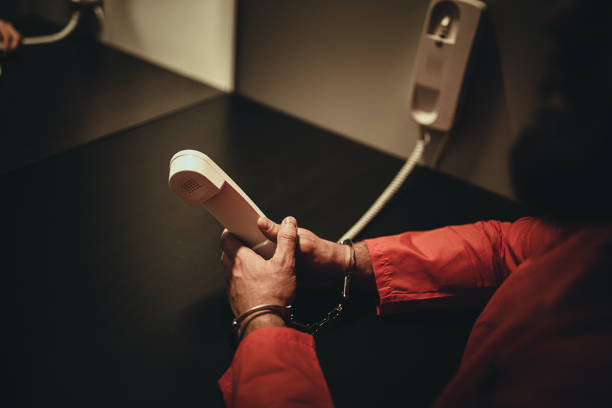Prisons Use AI to Monitor and Analyze Calls

“This call originates from an inmate correctional facility and is subject to monitoring and recording.” The Florida Department of Corrections currently has approximately 80,000 inmates incarcerated. The Florida Administrative Code mandates that all inmate calls, except those placed to attorneys under proper procedures, and to foreign consulates, shall be subject to monitoring and recording.
Notice to all Participants to the Communication
All monitored calls shall contain a prompt which clearly identifies the call as coming from a Florida Department of Corrections institution and advise that the call is subject to being monitored and recorded by the Department of Corrections. Likewise, signs are required to be posted on or near each phone which state that calls are subject to being monitored or recorded.
Additionally, it is standard practice for defense counsel to advise incarcerated clients, and their families, that communications are recorded and monitored. I advise clients to imagine law enforcement, the prosecutor, judge, and jury are all listening in on their jail calls. Despite warnings, that imagined scenario still manages to manifest itself in certain cases. When jail recordings are introduced as evidence, they typically include discussion of criminal activity, even candid confessions.
Artificial Intelligence
As reported in several media outlets, earlier this year the Florida Department of Corrections contracted with LeoTech, a company that produced a patented artificial intelligence software platform named Verus. According to the LeoTech website, Verus provides continuous real-time monitoring of communications and enables users to search “through millions of transcripts at sub-second speeds.” The A.I. software provides for searches by keyword, customizable alerts, the ability to investigate and uncover links and connections amongst the data collected, and even the ability to identify slang and coded lexical categories, terms, and synonyms.
Needle in a Haystack
Although it has been standard practice to record jail calls, the ability to effectively examine the content has been limited by the labor and costs required. Widespread examination would be equivalent to looking for a needle in a haystack. Effective mass-investigation of the communications of 80,000 inmates would not economical or feasible without A.I. It has been reported that the contract with LeoTech enables prisons to record and scan up to 50 million minutes of conversations. What used to be impractical, if not impossible, is now at the fingertips of prison officials.
Implications
The use of A.I. will assist prison officials and law enforcement by enhancing the efficiency of call monitoring. However, it raises concerns from privacy advocates, particularly regarding the potential for abuse or misuse of the technology, as well as the potential issues pertaining to data access and storage duration. For the defense practitioner, it is now more important than ever to advise clients, and their families, that calls while incarcerated are not simply subject to recording and monitoring, but also to real-time analysis and investigation conducted by artificial intelligence software.
Author: Ron Frey – The Frey Law Firm, LLC






